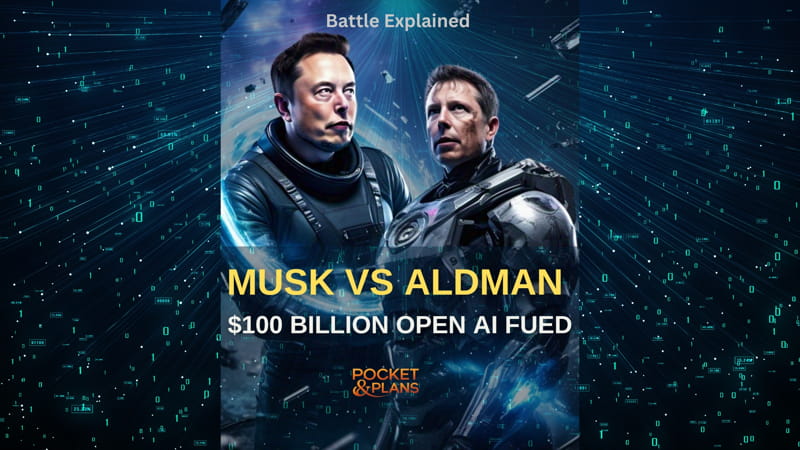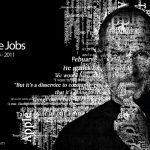Introduction
The OpenAI saga between Sam Altman and Elon Musk has captivated the tech world, blending high-stakes corporate drama with existential debates about artificial intelligence (AI). As two of Silicon Valley’s most influential figures clash over the direction of OpenAI, the feud raises questions about AI ethics, profit motives, and control over transformative technology. With Musk’s recent $97.4 billion bid to reclaim influence, Tesla stock fluctuations, and legal battles involving attorney Marc Toberoff, this conflict is reshaping the AI landscape. This FAQ blog unpacks the key players, timeline, financial stakes, and why this battle matters for the future of AI.
FAQ: The OpenAI Feud Explained
1. Who Are the Key Players in the OpenAI Feud?
- Sam Altman: CEO of OpenAI since 2019, Altman has steered the company toward groundbreaking AI tools like ChatGPT while balancing commercial viability and ethical safeguards. A former president of Y Combinator, he advocates for AI as a “force for good.”
- Elon Musk: Co-founder of OpenAI in 2015, Musk left in 2018 over strategic disagreements. The Tesla and SpaceX CEO has since criticized OpenAI’s shift from a non-profit to a capped-profit model, citing risks of unchecked AI.
- Marc Toberoff: A prominent intellectual property attorney representing Musk in his legal bid to challenge OpenAI’s governance structure. Toberoff is known for high-profile cases, including superhero rights disputes.
2. What Sparked the OpenAI Feud?
The core conflict stems from diverging visions for AI’s future:
- Musk’s Stance: Fears AI could surpass human control, advocating for open-source, non-profit development. He criticized OpenAI’s partnership with Microsoft and its pivot toward commercialization.
- Altman’s Vision: Believes in democratizing AI through scalable products like ChatGPT, funded by strategic alliances. OpenAI’s valuation now exceeds $80 billion (Bloomberg, 2023), reflecting its commercial success.
4. Why Is Elon Musk So Invested in OpenAI?
Musk’s interest is threefold:
- AI Safety: He warns AI could become “an immortal dictator,” urging regulatory oversight.
- Business Strategy: Integrating AI with X (Twitter) and Tesla’s autonomous projects.
- Control: His $97.4B bid aims to realign OpenAI with open-source principles, countering Microsoft’s influence.
5. How Has Sam Altman Responded?
Altman defends OpenAI’s evolution, stating: “Scaling impact requires capital.” Under his leadership:
- ChatGPT became the fastest-growing app in history.
- OpenAI’s revenue hit $1.6 billion in 2023 (The Information).
He dismissed Musk’s bid as a “distraction,” emphasizing OpenAI’s commitment to safe AGI (artificial general intelligence).
6. What’s the Role of Marc Toberoff?
Toberoff is Musk’s legal architect in challenging OpenAI’s governance. His lawsuit alleges:
- Breach of founding agreement to prioritize public good over profit.
- Unfair licensing deals favoring Microsoft.
A victory could force OpenAI to restructure or open its IP to competitors.
7. How Are Stocks Impacted?
- Tesla: Shares fell 8% in Q1 2024 as Musk diverted attention to AI ventures.
- Microsoft: Gained 14% in 2023, buoyed by OpenAI integrations (CNBC).
- X (Twitter): Valuation dipped to $19 billion amid Musk’s OpenAI bid (Forbes).
8. What’s the OpenAI Bid About?
Musk’s $97.4 billion bid includes acquiring key AI patents and talent. If successful, it could:
- Merge OpenAI with X’s AI projects.
- Halt ChatGPT’s commercial expansion.
However, OpenAI’s board rejected the offer, calling it “hostile” (AI News).
9. How Does This Affect AI Development?
- Delays: Legal battles could slow GPT-5’s release, projected for late 2024.
- Industry Ripple Effects: Rivals like DeepSeek and Google’s Gemini may gain ground.
- Regulatory Scrutiny: The EU is drafting stricter AI laws inspired by the feud (TechCrunch).
10. What’s Next in the AI Battle?
- Court Showdown: Toberoff’s case heads to trial in late 2024.
- Musk’s X Integration: Plans to deploy OpenAI-like models on X for content moderation.
- Altman’s Countermove: OpenAI is exploring an IPO (“openaistock”), potentially valuing it at $100B+ (Wall Street Journal).
Timeline of Events
Here is an updated timeline of significant events related to OpenAI up to February 11, 2025:
2015:
- December: OpenAI is founded as a non-profit organization by Elon Musk, Sam Altman, and others, with the mission to develop artificial intelligence for the benefit of humanity.
2018:
- February: Elon Musk resigns from OpenAI’s board, citing potential conflicts of interest with Tesla’s AI pursuits.
2019:
- March: Sam Altman is appointed CEO as OpenAI transitions to a “capped-profit” model to attract external funding while maintaining its commitment to its original mission.
2020:
- July: Microsoft invests $1 billion in OpenAI, securing an exclusive cloud partnership to enhance AI research and development.
2022:
- November: OpenAI launches ChatGPT, an AI chatbot based on the GPT-3.5 architecture, which gains rapid popularity, reaching 100 million users within two months.
2023:
- March: Elon Musk files a legal challenge through attorney Marc Toberoff, alleging that OpenAI has deviated from its founding mission.
- November: CEO Sam Altman and President Greg Brockman resign from OpenAI and join Microsoft, signaling a deepening collaboration between the two organizations.
- November 22: After negotiations, Sam Altman and Greg Brockman return to their roles at OpenAI, following internal discussions and external pressures.
2024:
- January: Elon Musk submits a bid of $97.4 billion to acquire OpenAI’s assets, as revealed in leaked documents.
- April: Tesla’s stock experiences an 8% decline amid investor concerns over Musk’s focus on acquiring OpenAI.
- June: Former NSA head joins OpenAI’s board and safety committee, indicating the organization’s commitment to security and ethical considerations in AI development.
- September: OpenAI releases its first model with “reasoning” abilities, marking a significant advancement in AI capabilities.
- October: OpenAI completes a deal valuing the company at $157 billion, reflecting its rapid growth and the increasing importance of AI technologies.
- November: Co-founder Greg Brockman returns to OpenAI after a brief departure, resuming his role in leading the organization’s strategic initiatives.
2025:
- February 12: Reports highlight a decade of tension between Elon Musk and Sam Altman over control of OpenAI, culminating in Musk’s recent bid to acquire the company, which was rejected by Altman.
This timeline reflects the key developments in OpenAI’s history, showcasing its evolution, leadership changes, and the ongoing dynamics between its co-founders.
Key Takeaways
- The OpenAI feud reflects a clash between open-source idealism and capitalist pragmatism.
- Musk’s $97.4B bid and legal strategy could redefine AI ownership.
- ChatGPT’s dominance hangs in the balance as regulators and competitors circle.
Conclusion
The Altman vs. Musk battle isn’t just a corporate rivalry—it’s a referendum on how humanity navigates AI’s power. With billions at stake and Marc Toberoff’s legal prowess in play, the outcome will shape whether AI remains a public good or becomes a privatized tool. Stay tuned to AI news for updates on this watershed moment.
Keywords: OpenAI, Sam Altman, Elon Musk, OpenAI bid, Marc Toberoff, ChatGPT news, DeepSeek news, AI news, Tesla stock down, X bid, CEO of OpenAI, Altman vs Musk, AI feud, AI battle, openaistock.
Sources: Bloomberg, Reuters, CNBC, The Information, Wall Street Journal, DeepSeek News.
Engage Further: Follow our AI news section for real-time updates on the OpenAI & DeepSeek feud and its global implications.







